In the Ring with Héctor Colón
Leaders in human services, philanthropy, business and government get real about their challenges associated with removing stigma and barriers to health and well-being for people who are most in need.
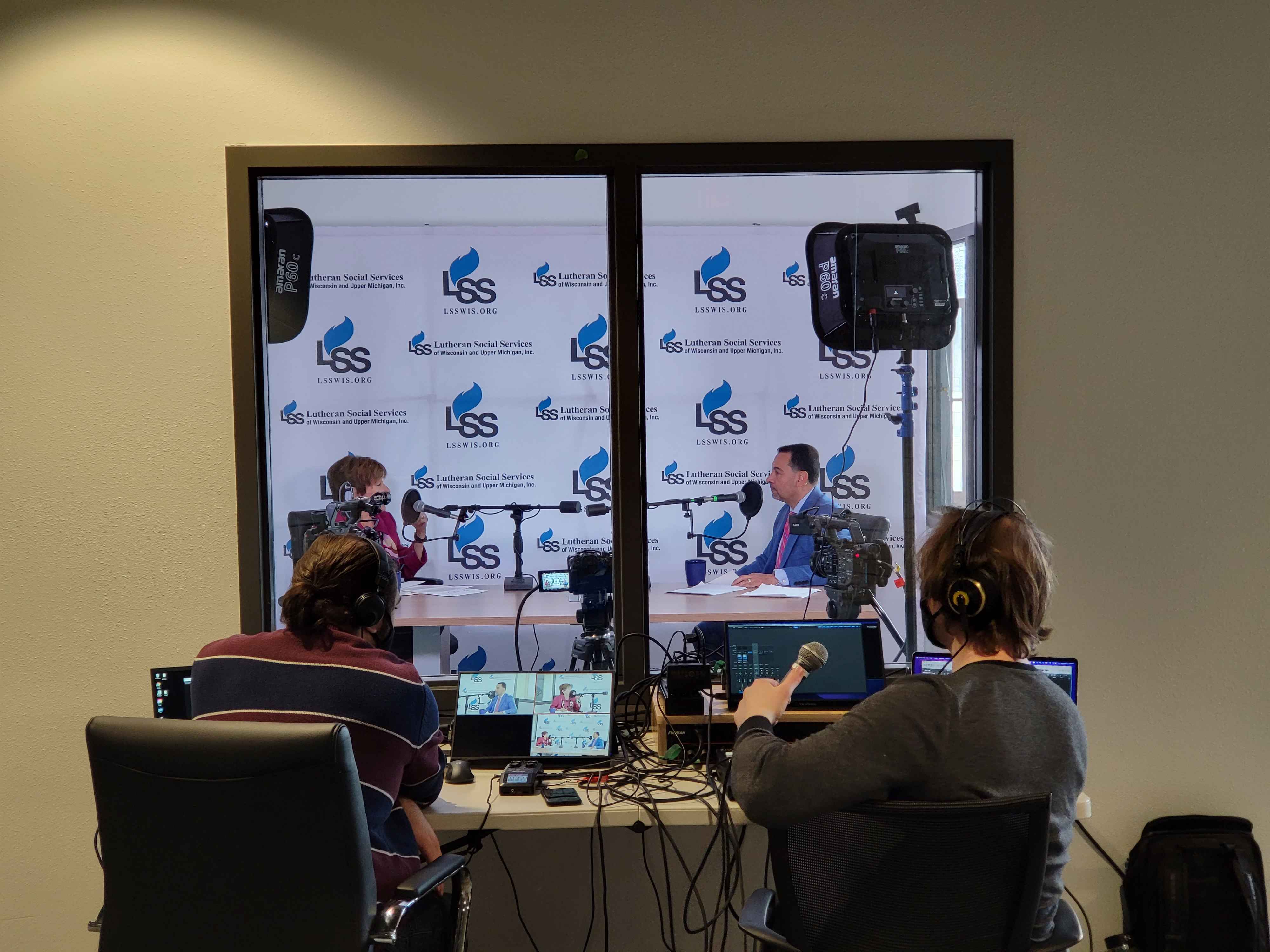
In the Ring w/Héctor Colón
Leaders in human services, philanthropy, business and government get real about their challenges associated with removing stigma and barriers to health and well-being for people who are most in need.
Episodes
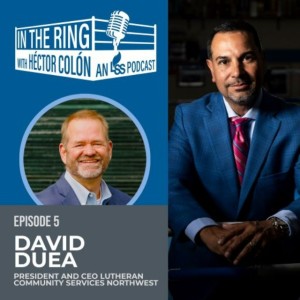
Tuesday Jun 21, 2022
Ep.5 - Davide Duea: Mental Health Crisis Demands Intervention. Bold Asks
Tuesday Jun 21, 2022
Tuesday Jun 21, 2022
LSS President and CEO, Héctor Colón, sits down with David Duea, President and CEO of Lutheran Community Services Northwest, to discuss how bold, aggressive advocacy and unashamed appeals for funding is vital for success. David describes how his organization’s push for big gifts and proactive partnerships with other agencies have taken Lutheran Community Services Northwest to the next level and helped countless more in need.
David also stresses how early intervention programs are vital to the health and well-being of everyone, including those working in social services agencies. This work is transformational, and it is important to have specific professionals to focus on each type of situation. Concentrated, direct devotion to each individual and family gives agencies the best opportunity to make an impact.
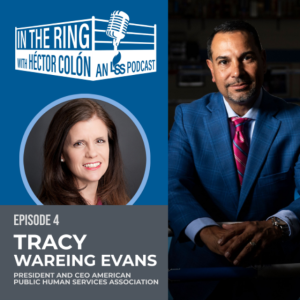
Wednesday May 18, 2022
Wednesday May 18, 2022
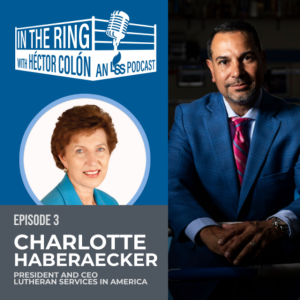
Wednesday Apr 20, 2022
Ep.3 -Charlotte Haberaecker: If Not Us, Who? Human services shift social challenges
Wednesday Apr 20, 2022
Wednesday Apr 20, 2022
Too much emphasis for funding in the social sector has focused on providing services after problems have occurred. A lack of innovation and prevention dollars create larger gaps among certain demographics and fail to correct long-term problems for individuals and communities. Developing healthy, productive children and adults who live with purpose and meaning is critical to solving societies largest problems – and the social services sector can lead the charge.
LSS President and CEO Héctor Colón chats with Charlotte Haberaecker, President and CEO of Lutheran Services in America, as she talks about creating a disruption, not waiting for one to happen. Charlotte and Héctor also discuss the workforce shortage in the sector and how it impacts its members, the services they provide, and the ability to meet the whole needs of people. They also break down the need for upstream funding through innovation and prevention, and how strategic partnerships and stakeholders can help fuel philanthropy that provides flexible spending to fulfill essential needs.
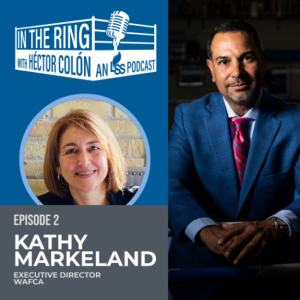
Wednesday Mar 16, 2022
Wednesday Mar 16, 2022
As the social services sector fights to provide equitable support across demographics, its leaders must question how the current systems create disparities in different regions and communities. The industry also faces a perception concern, where many view social services like a charity instead of a fully functioning workforce designed to empower people and lead them to successful futures. Through targeted investments and partnerships, particularly within healthcare, government and the sector as a whole, more doors and funds can be opened to both appropriately compensation its employees and deliver comprehensive and sustainable services needed to truly empower vulnerable populations to thrive.
LSS President and CEO Héctor Colón speaks with Kathy Markeland, Executive Director of the Wisconsin Association of Family & Children’s Agencies (WAFCA). Kathy shares her expertise and insight into how WAFCA and its members are “Wisconsinizing” the report, A National Imperative: Joining Forces to Strengthen Human Services in America. Kathy and Héctor also discuss the social services’ perception problem. That many view the sector as a one-dimensional charity and do not see it as the missing piece to whole person care that empowers health and wellness.
Highlights
7:24 – It is center to our mission in charge within the human services sector: To be questioning how our systems can be better formed to provide for more equity in the ability for people to move forward and actually realize their full human potential, which is really, ultimately what we hope for our families and the individuals we serve.” (7:46)
9:46 – We all will be touched by the need of human services. At some point in our life we are going to intersect with that ecosystem of services. And that it’s not about who needs and who doesn’t need, it’s about that we all have need and ultimately we’ll all tap into a human services…point.” (10:06)
13:28 – That perception that we are simply charity or somehow only charitable entities, and not recognizing that fundamental value of social services as a core component of delivering what we need for our communities.” (13:44)
16:03 – At the core, when you think about some of the fundamental services that we provide, whether they be in the community or in foster care, these are not things that are optional. These are things that we as a community have stepped up to say we need to provide for this.” (16:18)
18:02 – So we found ourselves sort of at a difficult point where you also are left with some disparities around what can be done in various regions of the state. Some places do have more prevention services than others. I think that that inequity and disparities is another piece that, because of the design of our systems that really is stark in Wisconsin. (18:24)
25:36 – One of the messages that I hear from our members is they are looking for ways to be better partners with the healthcare system, to be able to be part of an integrated package of services. And that we have specialty to bring to that work that we would really like to see recognized in partnership with them more.” (25:44)
27:21 – We have to double invest. We need to put some investment in prevention in order for us to realize that win – that return on investment in the long run. I think putting some additional dollars towards that. Recognizing and paying our workforce in a way that helps us sustain and grow and really further professionalize some of our areas, particularly in the direct care workforce, would be huge for in the state. (27:47)
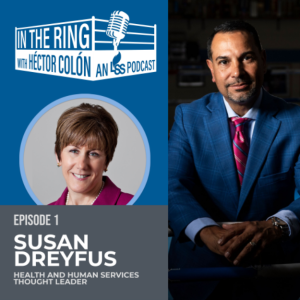
Wednesday Mar 16, 2022
Wednesday Mar 16, 2022
Summary: If the social services sector is going to make a greater impact, then leaders must work together to elevate preventative services to the level of healthcare. Sector leaders need to help advocates who are not typically involved in direct client care (e.g., policy makers, philanthropists, etc.) proximate to our work in order to experience what it takes to holistically and sustainably improve lives. To reach this level, it will take a collective disruption by sector leaders to push towards increased partnerships including mergers and acquisitions, data and information sharing and more robust funding across the board.
LSS President and CEO Héctor Colón speaks with Susan Dreyfus, a respected social services thought leader, to discuss her thoughts and experiences on how the sector as a whole can up its game. The time is now. Let’s go!
Highlights:
7:12– Social and environmental determinants of health are more important to your health and my health than all of the primary care services that we could be providing to people. (7:22)
11:55 – If you gotta make one investment, make it in early childhood, because it’s our one hope. (12:00)
16:12 – In order for us to do our very best work and to put investment in things like advocacy; to put investment in things that build our capacity through the lens of innovation and technology….We can’t do that without margin. (16:28)
19:36 – What we’re stewards of is a mission. The organization is the mechanism to which that mission is achieved. If we can create a better mechanism to achieve that mission – and not just for the provision of programs and services, but larger influence and capacities in our organizations – that’s what we’re stewards of. (19:55)
22:28 – I think our boards of directors – we like the who’s who of community – they have a level of access that I think we underestimate and underutilize. (22:37)
26:21 – Identify your core policy champions. Get them proximate to your organization. Not just for the mission moment at a board meeting. Get them proximate to the neighbors and the communities that you engage and support, and you will have a champion going forward. (26:38)
27:23 – And I think our sector competes too much with one another. We’re competing for contracts – bottom line. And I think we have to understand we’re stronger together. (27:33)




